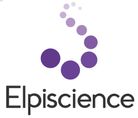
- Home
- Companies
- Elpiscience
- Products
- Model ES014 - Anti-CD39xTGF-ß BsAb ...
Model ES014 - Anti-CD39xTGF-ß BsAb Dual-Acting Molecule
ES014 is a first-in-class anti-CD39xTGF-β bispecific antibody (bsAb) that simultaneously targets the adenosine and TGF-β pathways, two major immunosuppressive mechanisms in the tumor microenvironment (TME). Solid tumors frequently express TGF-β, which suppresses T cell activation and induces CD39 expression, the rate-limiting enzyme in the ATP-adenosine pathway. The anti-CD39 target is designed to selectively direct ES014 to the TME where the anti-TGF-β activity promotes effector T cell function and immune activation, while avoiding or minimizing systemic immunotoxicity. ES014’s anti-CD39 activity further aims to reverse TME immunosuppression by reducing suppressive adenosine, while maintaining high levels of immune-stimulatory extracellular ATP.
The combined removal of immune suppression and immune stimulating effects of ES014 were recently demonstrated in a PD-1 antibody non-responsive in vivo animal model where tumor growth was significantly inhibited after treatment. ES014 received FDA IND clearance in May 2022.

- Solid tumors frequently express TGF-β, which suppresses T cell activation and induces CD39 expression, the rate-limiting enzyme in the adenosine pathway
- The anti-CD39 target is designed to selectively direct ES014 to the TME where the anti-TGF-β activity promotes immune-favorable T cell activation and cytokine release, while avoiding or minimizing systemic immunotoxicity
- ES014’s anti-CD39 activity further aims to reverse TME immunosuppression by reducing suppressive adenosine, while maintaining high levels of immune-stimulatory extracellular ATP
- Unique MOA: Simultaneously targets two major TME immunosuppressive pathways
- Designed to effectively promote T cell function and activation as well as reverse immunosuppression in the TME
- Superior anti-tumor activity in PD-(L)1 non-responsive in vivo model
In vitro:
- Inhibits CD39 expression and reverses Treg cell differentiation
- Effectively promotes T cell survival and expansion by anti- CD3/CD28 stimulation
- Promotes IL-2 and IFN-γ cytokine production leading to higher T cell activation
In vivo:
- Significantly anti-tumor activity in SK-MEL-5 anti-PD-1 resistant model
